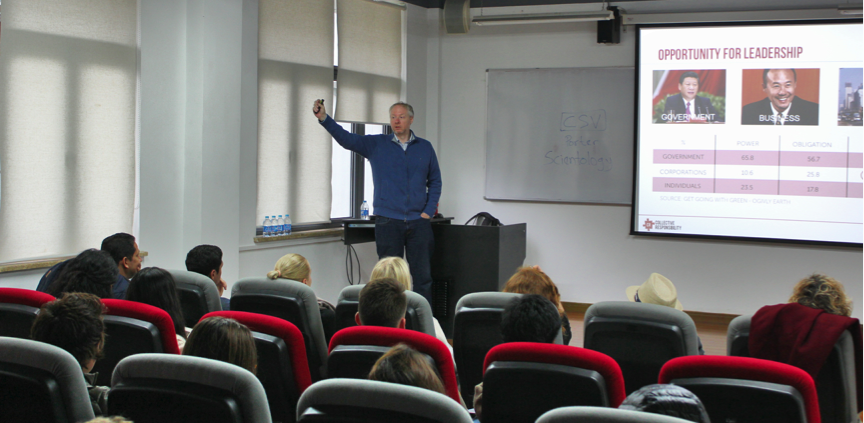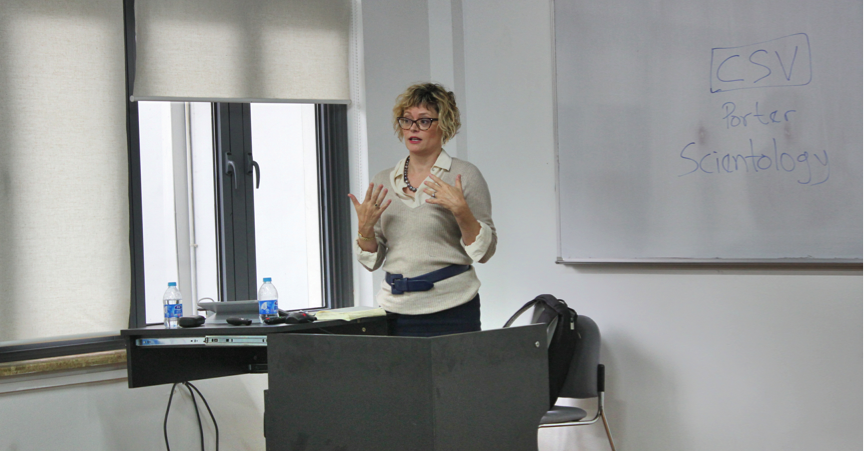
This Thursday, we hosted another talk on “Ethics versus Business Goals” at Donghua University as we continued with the Sustainability Speech Series. Two speakers were invited to give a presentation: Richard Brubaker, Founder of Collective Responsibility and an Adjunct Professor of Sustainability at the China Europe International Business School (CEIBS); and Amy Sommers, Chief Representative of the Shanghai office of K&L Gates LLP. Professor Miguel Cerna from Donghua’s Center of International Programs moderated a panel discussion afterwards, and over 30 undergraduate students majoring in Business Administration attended.
Both speakers have profound knowledge and experience on the topic. Rich has spent the past 15 years in Asia working to build platforms that promote long-term organizational capacity to address the economic, environmental and social hurdles that China faces as its economic growth accelerates. To date, he has overseen the development and execution of more than 200 projects, many related with moving beyond compliance and innovating corporate social responsibility. Amy has an international practice advising on investment and operations in highly regulated industry sectors, including real estate, travel e-commerce, financial services and education. She is noted as a leading China practitioner and recognised authority on PRC anti-corruption/FCPA compliance issues and ant-bribery compliance.
Rich started off by explaining how he understands sustainability, and why sustainability is never really about “saving the polar bears” but rather our ability to deliver an economy to 7 billion urban consumers. As China has urbanized and urban footprints have grown, industries in China have been challenged to keep up with growing demand, that consumers are tired of business scandals, and that it is the responsibility of brands to understand that the rules of game have changed. While the bottom line is for brands to meet government guidelines, it is their ethical behaviour and vision of common growth that can eventually win them market shares.

Amy shared a few case studies where companies’ unethical decisions destroyed the regional businesses and caused huge financial losses. From her perspectives, the challenge of making ethical decisions for businesses is universal, but can be particularly difficult in China due to the fierce market competition and the weak implementation in the country’s legal system. An interesting observation she had was that while some employees acknowledged their bribing behaviour when investigated, they would not feel guilty because they believed the money they earned would eventually benefit the company rather than themselves.
In the Q&A session that followed, the speakers and students further exchanged thoughts on the different contexts of business ethics in developed v.s. developing countries and the implications for what should be the benchmark for securing long-term business profitability.
Should you be interested in hosting or becoming a speaker of the Sustainability Speech Series, please reach out to Chuli at [email protected] or Yuxin at [email protected].
